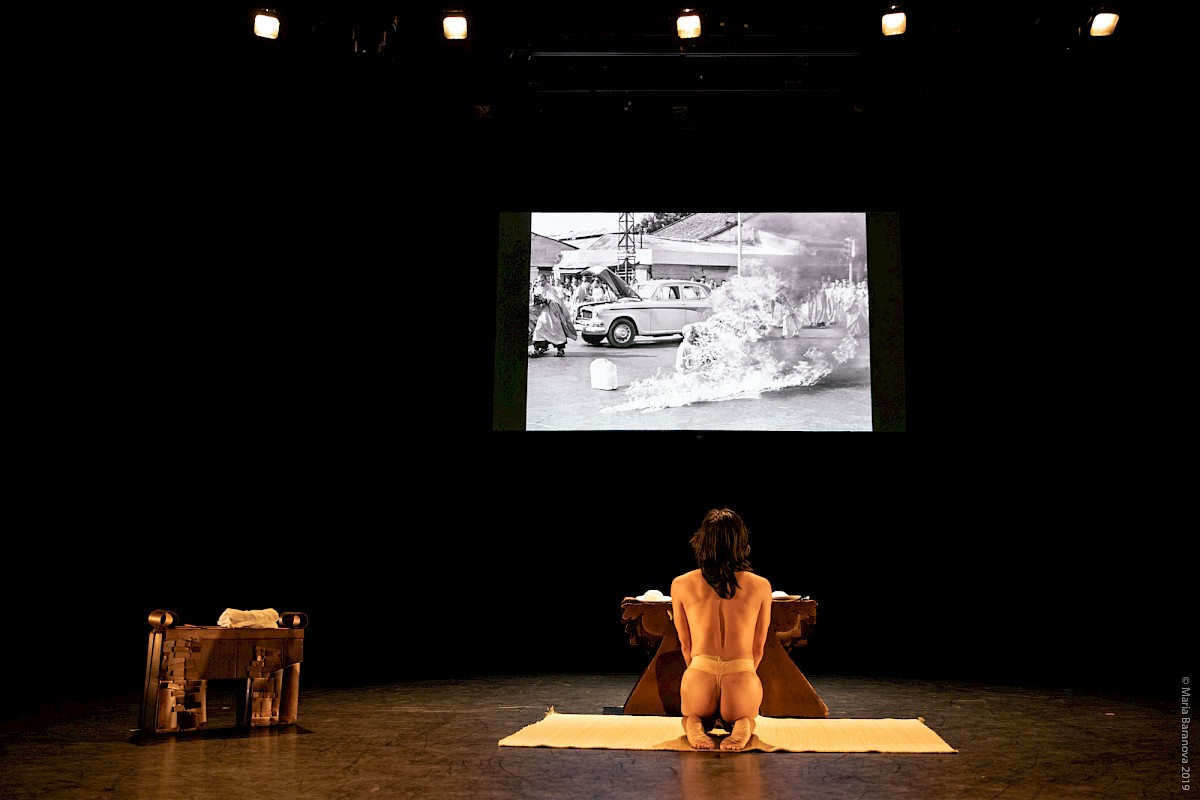Anh Vo

Anh Vo creates dances about pornography and queer relations, about being and form, about identity and abstraction, about history and its colonial reality. Their content-driven approach produces an omnivorous attitude toward forms, as they draw from a range of aesthetics including Western experimental dance, Afro-diasporic dances (vogue, house, West African), Vietnamese traditional rituals, Brechtian epic theater, feminist and queer performance art. Vo orients their work toward the audience members, living and dead, in the past, present, and future, making performances as a mode of offering to both those who are here and those whose sufferings allow them to be here.
“Babylift” is named after the operation responsible for the mass evacuation of Vietnamese orphans from South Vietnam to the U.S. and other Western countries. The first plane to leave crashed into a rice paddy, killing 78 children whose deaths are largely unmourned and unremembered. My project attempts to, first and foremost, provide an ongoing memorial for these forgotten lives. Working with iconic photojournalism images, Vo draws from the rituals in their Vietnamese culture (setting up an altar, providing offerings, delivering incantations, dancing, and singing) to connect themself with the dead and conjure them into the performance space. Their goal is to queer the history of the Cold War, creating an abstract and affectively-charged narrative that weave together cultural memories of the Vietnam War, the Civil Rights Movement, the American freedom fantasy of the 1960s, and the current anti-Trump sentiment. In addition, they experiment with juxtaposing sexually suggestive movements with the violent history being evoked, in order to speculate the erotic of haunting that can be both terrifying and pleasurable. The project's intended outcome is to have a diverse audience come together to reflect on the afterlife of the Vietnam War and how this colonial history currently haunts the U.S. political and cultural life.